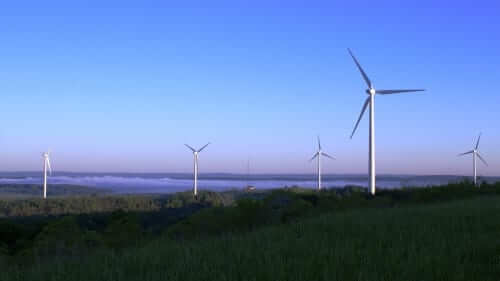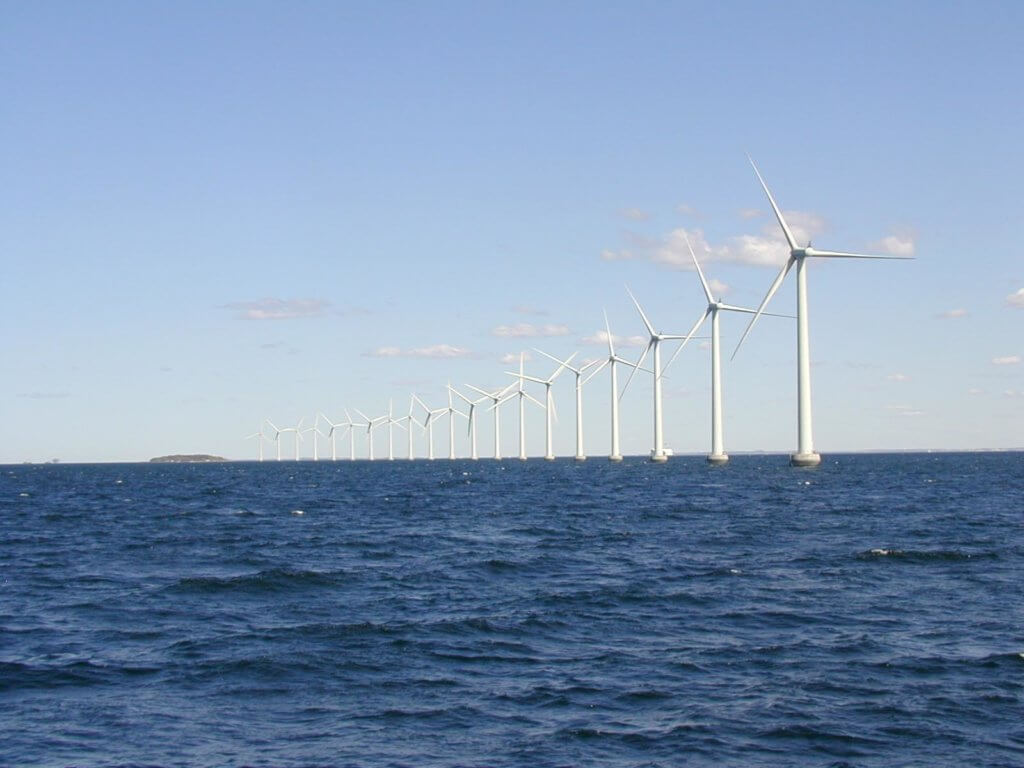News roundup: Preserving the PTC, bigger turbines for N.C., Microsoft chases renewables
It’s Friday, and before the weekend break, a New England editorial pushes for a PTC extension, bigger turbines can capture North Carolina breezes, and Microsoft doubles down on renewables.
Clean, renewable energy like wind power is helping to keep electricity affordable in New England, says the Concord Monitor, which is urging for an extension of the PTC:
- The national transition… toward an increasing reliance on power from the wind and sun has been becalmed by the expiration of the Production Tax Credit.
- Wind power, which is not without its own problems, pollutes far less, and its use reduces the region’s overreliance on natural gas.
- The use of subsidies to foster the development of green energy sources like solar and wind power is still necessary. But both technologies have evolved to the point where they could compete head to head with power from almost any other source if the subsidies given those sources were also withdrawn. Most of those subsidies come in the form of “externalities,” primarily unaccounted for environmental and health care costs.
- In a perfect energy world, all externalities would be accounted for and all producers would compete on an equal footing. The situation, however, is a long way from perfect.
North Carolina is brimming with wind power potential, both land-based and offshore, and the advantage from taller turbines just might be a dealmaker for the Tar Heel State:
- A new report from the U.S. Department of Energy shows that manufacturing larger wind turbines would address “transportation and logistics challenges…” and “may accelerate the development of new markets in low- and moderate-wind-speed regions in the United States.”
- According to Raleigh-based Brian O’Hara, president of the Southeastern Coastal Wind Coalition, North Carolina has a low to moderate wind speed on the land, and the further you are from the ground, the faster the wind is blowing.
- “As you go up, the wind speed increases, at a faster rate here than in other places,” says O’Hara. “It’s places like the Southeast that are most impacted by improvements in technological advances.”
Microsoft is taking advantage of the abundant Texas wind, and its academic resources, to build clean, efficient datacenters:
- As the cloud computing market grows bigger, so do the power requirements to keep it afloat. Tech companies are increasingly turning to renewables and energy-efficient technologies to decrease their reliance on old, power grids that burn fossil fuels to generate electricity. Microsoft announced April 16 that it had partnered with the University of Texas at San Antonio to help wean data centers off carbon-producing energy sources.
- Janous revealed that the company had "good reason" for partnering with the university. The company opened a data center there in 2009, and "was one of the first in the industry to employ technologies like using wastewater for cooling to reduce energy consumption," he said. CPS Energy, the city's utility, "is the largest publicly owned purchaser of wind power in the country, with 1,059 megawatts (MW) of wind-generated electricity in commercial operation."
- Texas is emerging as a major focus of Microsoft's green technology efforts. This latest move follows last year's big wind power purchase deal. The company agreed to buy 100 percent of the power generated by the Keechi Wind Farm for 20 years, ensuring that the project gets off the ground 60 miles northwest of Fort Worth.
Celebrate wind power and Earth Day during #IHeartRenewables week!
Be sure to check out this week’s other roundups:
- Thursday: Top wind power states, Michigan's clean energy success, Xcel claims the top
- Wednesday: Choose a clean energy future, zero-energy companies, big players in global wind
- Tuesday: PTC builds momentum, Ohio's RPS means consumer savings, driving down prices in Texas
- Monday: The PTC's importance, stepping up NC clean energy, a strong year for global wind
Sources:
Editorial, “Timing is wrong to take away subsidy for wind power.” The Concord Monitor. 17 April 2014.
Dawn Kurry, “Bigger wind turbines could propel N.C.'s energy sector.” Triangle Business Journal. 17 April 2014.
Pedro Hernandez, “Microsoft Continues Efficient Data Center Push in Texas.” eWeek. 17 April 2014.




